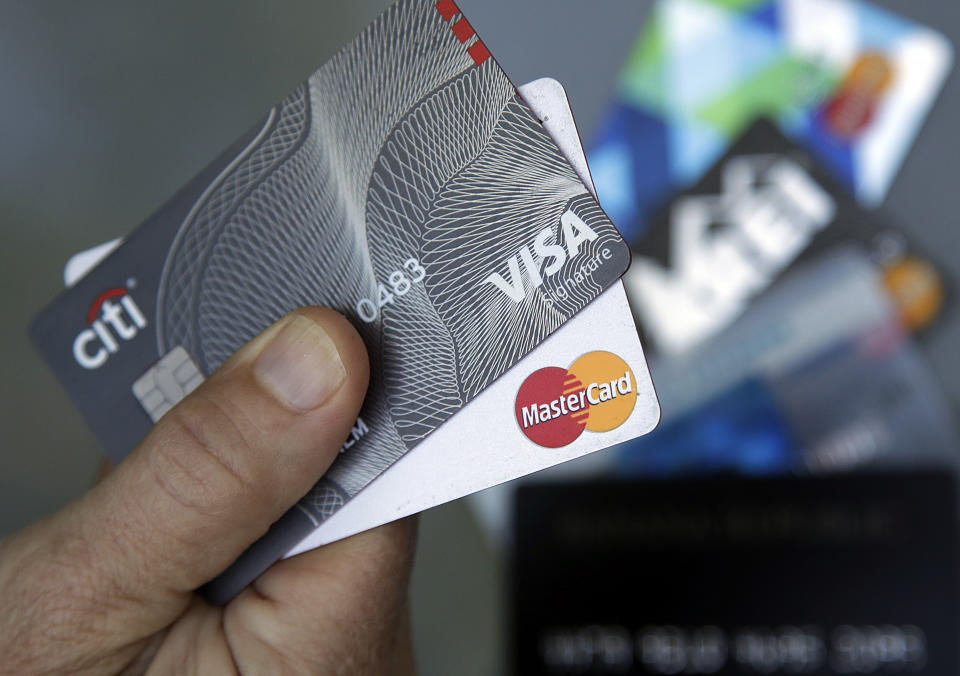Three tips to get a good credit score before you need it
Partway through college, I got it in my head that I needed a credit score — I wasn’t sure what for exactly, but I knew I needed one. I didn’t have a steady income and wasn’t planning on financing a new car. But as it turns out, starting to build up a good credit history – before you even get your diploma – can help get your financial life on solid footing for when you finally do enter the “real world.”
Why you need good credit
Managing credit can be challenging and expensive, making it tempting to ditch credit cards altogether. But while many can live without a credit card, the credit score it creates can be important.
“This is happening to a lot of young adults applying for their first apartment or car loan,” says Ted Rossman, an industry analyst at CreditCards.com. “It’s like getting your first job — everybody wants experience, but you don’t have experience.”

A good credit score is typically required to get a mortgage or car loan without an exorbitant interest rate. But it’s also useful outside the world of debt.
“When people say ‘I don’t care about my credit score because I don’t borrow money,’ that’s very shortsighted,” says John Ulzheimer, who has worked for FICO and Equifax.
Ulzheimer said car and homeowner’s insurance is priced using credit, so you can get a better premium with a good credit score.
“And you’re not entitled to insurance,” Ulzheimer said. “You may just get denied.”
And it’s common for prospective landlords or utilities to check credit scores, Rossman says. Although you’re not borrowing money when you rent an apartment or get a new cable TV package, they are commitments to continued payment. Utilities, he says, may require a down payment if you don’t have good credit.
And since young people, if they have a credit score, are the most likely to have a poor one, here’s how to build a good credit history before you even need one:
Method 1: A secured credit card
When I went to my local credit union to get my first credit card, I told them I didn’t actually want debt — I just wanted a credit score. And they gave me what I needed: a secured card.
The card had a balance limit of $500 and it was backed, or secured, by $500 in my savings account. I called it my “baby credit card.” Ulzheimer calls it a credit card with training wheels.
With a secured card, it’s impossible to go into any real debt. But you’re still responsible for making payments on time, and missing payments will reflect poorly on your credit report.

When applying for a secured card, Ulzheimer says to make sure of two things — that there is no annual fee and that the issuer reports to all three credit reporting agencies.
The downside to this method is that it can take a few months to build up a credit history long enough to matter to someone screening tenants or approving loans.
Method 2: Become an authorized user
Another method to get a good credit score early on is to find someone you trust — usually a parent — and have them put you on their credit card account as an authorized user. The history of their account will factor into your score.
“If you associate yourself with an account that’s old, has a high credit limit, and has always been paid on time, you’re going to get the value out of all of that,” Ulzheimer says.
The advantage to this method is that it gives you a good credit history almost instantly, so it’s great if you need to prove you can pay immediately. Plus, you’re not responsible for paying off the debt.
“But if the primary user misses payments, that shows up on your credit report and you can’t control that,” he says, “so it’s important to make sure you know it’s being managed well.”
Bonus: Credit builder loan
For those who don’t want a credit card at all, Rossman says a lot of community banks and credit unions have what are called credit builder loans.
“What’s unique about a credit builder loan is you don’t actually get the money from the loan. They put it into an account,” Ulzheimer said. “You pay them interest on the loan but get some back from the savings account. The only reason that exists is to help somebody build credit.”
The idea is that you go through the motions of paying off the loan from the account, proving your ability to make financial commitments.
But there are some disadvantages to credit builder loans: they can cost you — Rossman says usually between $50 and $100 — and can take time to build up the credit history. Ulzheimer says these loans are uncommon.
And you might already have a credit history without knowing it. Ulzheimer says many people will end up with a credit history by inadvertently signing up for department store credit cards or taking out a student loan.
